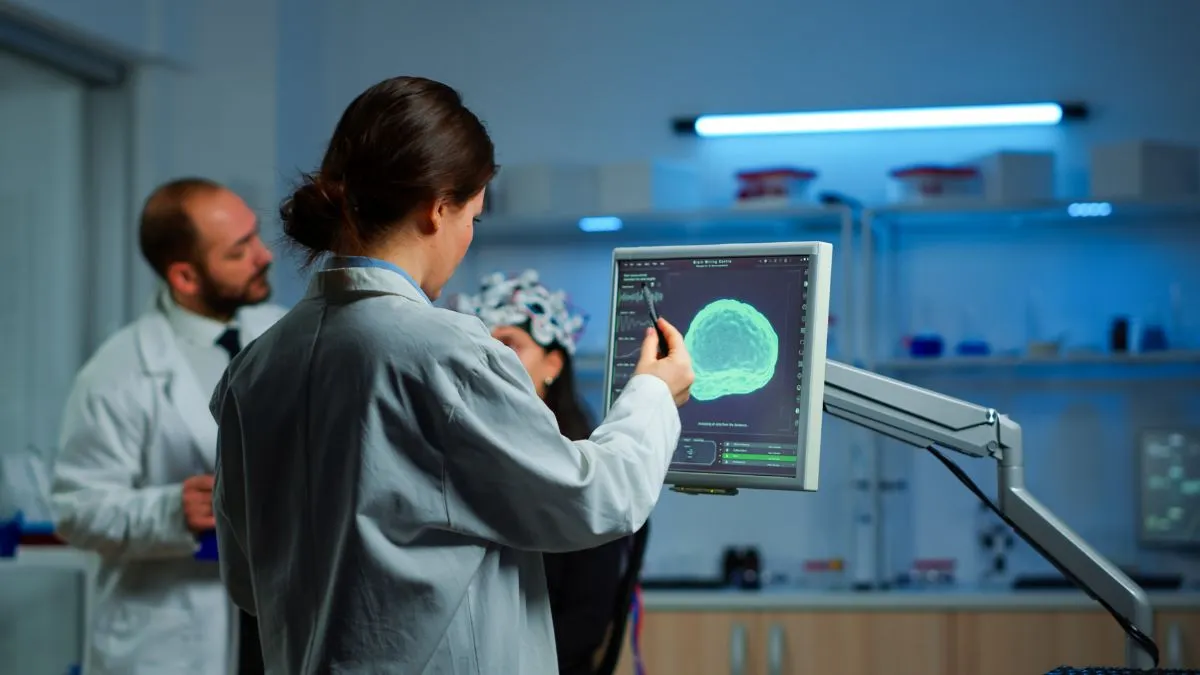
The brain begins to turn on itself in the initial phases of Alzheimer's disease, well ahead of any memory loss or confusion that disrupts your everyday routine. A gradual transformation takes place as neurons and synapses weaken and amyloid plaques build up like creeping shadows. For an extended period, these concealed changes would remain snugly hidden within the skull, entirely overlooked until it’s too late.
Table of Content:-
“However, artificial intelligence (AI) is now shedding light on these obscured processes, offering a fresh perspective for doctors and researchers to envision what lies ahead. This is because AI is transforming the diagnosis and treatment of Alzheimer's, not through flashy spectacles, but via the consistent, relentless analysis of data that would baffle human understanding,” explains Dr Pallavi Sharma, Director- Kailash Group of Hospitals.
For instance, AI algorithms have been honed using brain scans, genetic information, speech patterns, and even blood tests, enabling them to spot trends that might surface years ahead of any clinical indicators. To put it plainly, they are not merely smoothing out the diagnostic process; they are redefining the timeline of optimism.
Shifting from Reaction to Prediction
Traditionally, diagnosing Alzheimer's disease relied on clinical evaluations, cognitive tests, and invasive methods like lumbar punctures. Unfortunately, these techniques frequently identify the disease only after significant harm has occurred.
As per Dr Pallavi Sharma, ”AI possesses the capability to detect subtle changes in brain scans, like the reduction of the hippocampus or early signs of white matter decline, well ahead of any symptoms surfacing. This is because deep learning models trained on thousands of scans can accurately distinguish between normal aging and pathological decline.”
Also Read: AI in Diagnostics: How Technology is Making Healthcare Faster and More Accurate
In fact, some research indicates that AI might be able to predict the shift from mild cognitive impairment to full-blown Alzheimer's disease years ahead of time. Furthermore, the abilities of AI extend far beyond just early detection. Instead, they encompass prognosis and tailored care.
For instance, imagine a technology that examines a patient's MRI scans, genetic markers, and voice recordings. It can then predict the speed at which the disease will progress. These predictive models are not just abstract concepts. Rather, they are currently undergoing clinical trials. These models provide more than just probabilities. They also help in making decisions, allowing doctors to develop timely and accurate treatment strategies.
New Motivation for Drug Discovery
“AI is revitalizing the long and often unproductive path of Alzheimer's drug research. By analyzing extensive amounts of biological interaction data, AI is uncovering innovative therapeutic targets and even finding new uses for existing medications. As a result, it can accomplish what used to take years of research in merely a matter of weeks. In a time when a failed trial can run into billions, speed is crucial,” shares Dr Pallavi Sharma.
Also Read: World Alzheimer’s Day: Why Senior Care Is Crucial For Alzheimer's Patients
The Ethical Issues of AI in Healthcare
These changes create their own challenges. For starters, the AI development data, scans, genomic information, and personal health information, is personal data. Therefore, there are many concerns about privacy, consent, and ethical use of the data.
Furthermore, many algorithms have been developed using data from Western populations, and as a result, it may be a stretch to generalize (and study their fairness and accuracy) with other populations. For example, a model that assesses the risk of Alzheimer's disease in a population in Europe will not translate well when data come from an Indian or African population.
There is real potential for AI to be a disruptive technology, but it will not get there if the development of AI does not include diversity and even becomes a luxury instead of something that is available to all.
Also Read: How Your Eye Exam Could Reveal Alzheimer’s Risk Early
Dr Pallavi Sharma highlights, “Another challenge for the medical industry is determining how to train clinical providers to properly adopt this new technology. This is because the vast majority of medical doctors will have no training on how to apply results from an algorithm or how to evaluate the reliability of a model.”
However, medical education is beginning to evolve, albeit at a gradual pace. Ultimately, bridging the gap between sophisticated computational models and hands-on clinical practice will necessitate more than mere technical expertise; it will also demand trust, transparency, and new methods of interaction between machines and healthcare professionals.
A Fresh Story of Optimism
Despite these challenges, it's clear that progress is being made. In fact, AI is starting to enhance access to early diagnosis, particularly in areas with limited resources, by providing affordable, non-invasive screening techniques that utilize voice analysis or smartphone data.
Alzheimer's is a disease that steals one's sense of self. However, with AI, we are starting to outpace its theft, not by eradicating the disease, but by detecting its fingerprints early, following its course, and developing solutions based on precision rather than guesswork. So while it is not a cure, there is, at last, a change in the story that emerges, crafted not in forgetfulness, but in information, exploration, and resolve.
How we keep this article up to date:
We work with experts and keep a close eye on the latest in health and wellness. Whenever there is a new research or helpful information, we update our articles with accurate and useful advice.
Current Version
Sep 21, 2025 16:20 IST
Published By : Chanchal Sengar